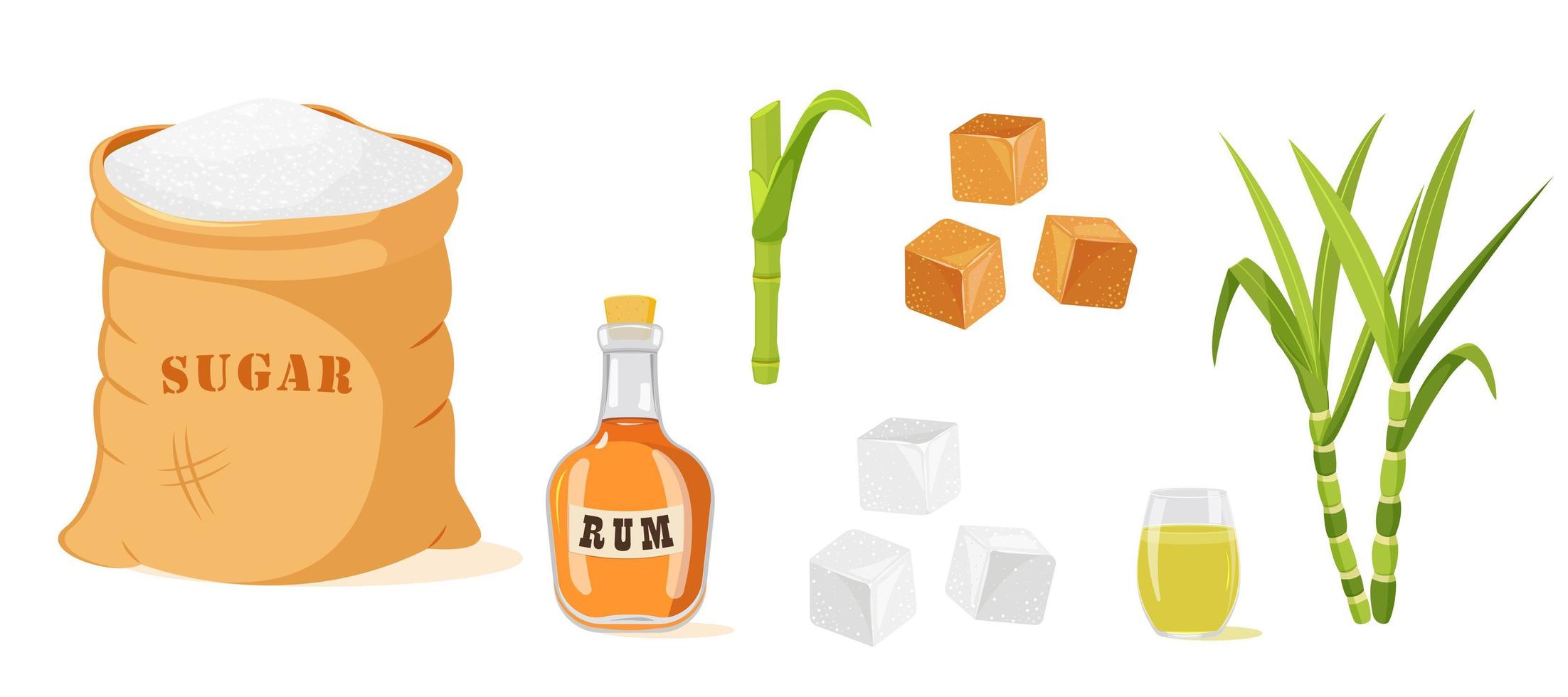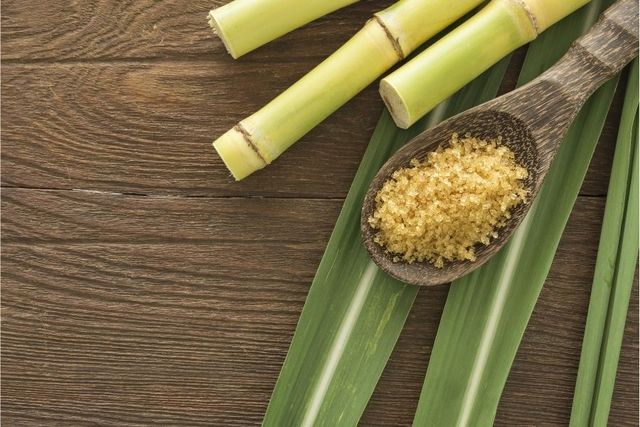From Sugarcane Product to Energy: The Diverse Uses of Sugarcane
From Sugarcane Product to Energy: The Diverse Uses of Sugarcane
Blog Article
Sustainable Sugarcane Products: From Sweeteners to Eco-Friendly Item
The possibility of lasting sugarcane items expands past typical sweeteners to incorporate an array of green goods, providing an engaging case for their integration into modern consumer techniques. As the globe grapples with pushing ecological issues, sugarcane arises as a functional resource capable of dealing with both nutritional demands and sustainability objectives.
Overview of Sugarcane Sustainability
As the need for ecologically pleasant products expands, comprehending sugarcane sustainability ends up being progressively crucial. Sugarcane, a flexible crop, is cultivated primarily in tropical and subtropical areas, and its sustainability is essential for both environmental health and wellness and economic feasibility. Lasting sugarcane farming practices focus on minimizing environmental impact while making the most of productivity and success.
Trick aspects of sugarcane sustainability include reliable land use, reduced chemical input, and enhanced water management. Practices such as plant rotation, incorporated bug administration, and organic fertilizing add to dirt health and biodiversity. Furthermore, ingenious modern technologies, such as precision agriculture, help optimize resource usage and reduce waste.
Furthermore, sugarcane is a renewable energy, with by-products that can be utilized in different sectors, from biofuels to biodegradable plastics, consequently lowering reliance on nonrenewable fuel sources and diminishing carbon footprints. Certifications like the Bonsucro standard encourage lasting practices across the supply chain, advertising openness and responsibility.

Sugarcane-Based Sugar
Making use of sugarcane as a primary source, sugarcane-based sweeteners have actually acquired prestige as natural alternatives to fabricated sugar and refined sugars (sugarcane product). These sugar, stemmed from the removal and handling of sugarcane juice, provide a series of items that deal with varied customer preferences, consisting of organic and minimally refined options
Amongst one of the most noteworthy sugarcane-based sweeteners are raw walking cane sugar, panela, and molasses. Raw walking stick sugar keeps even more of the natural flavors and nutrients located in sugarcane, making it a preferred choice for health-conscious customers. Panela, a traditional Latin American sugar, is produced by vaporizing sugarcane juice, protecting its natural minerals and vitamins. Molasses, a byproduct of sugar extraction, is abundant in antioxidants and necessary nutrients, serving as a healthy sweetening agent in numerous culinary applications.
The growing demand for sugarcane-based sugar is driven by increasing understanding of wellness and sustainability concerns related to traditional sweeteners. By picking sugarcane-derived products, consumers not only sustain lasting farming techniques however likewise add to a healthier way of living, straightening their dietary choices with their environmental values.
Biodegradable Product Packaging Solutions
Becoming a viable option to standard plastics, eco-friendly product packaging services originated from sugarcane are changing the product packaging market. These ingenious products offer an ecologically friendly option that deals with the growing issues over plastic air pollution. Using the natural sugars found in sugarcane, suppliers are creating numerous forms of biodegradable packaging, consisting of movies, containers, and covers that decompose extra quickly than traditional plastics.
The primary advantages of sugarcane-based packaging hinge on its eco-friendly sourcing and its capability to break down right into safe results. Unlike fossil fuel-derived plastics, which can continue the setting for centuries, sugarcane packaging generally decomposes within a couple of months under proper conditions. This decrease in waste not just minimizes landfill overflow however likewise decreases the carbon impact related to packaging products.
Furthermore, sugarcane-derived product packaging keeps robust performance qualities, supplying similar longevity and capability to conventional options. As businesses and customers increasingly prioritize sustainability, the adoption of eco-friendly product packaging remedies represents a substantial step in the direction of a circular economic climate, where materials are reused and regenerated instead than thrown out. This change not just boosts brand picture but additionally adds to a more lasting future for the planet.
Eco-Friendly Textiles and Fabrics
Green textiles and materials are getting grip in the fashion and home items industries as consumers increasingly demand sustainable choices to typical products. Among the noteworthy choices are materials originated from sugarcane, which offer an environmentally responsible choice to synthetic fibers. These textiles are produced via a process that utilizes the eco-friendly resources located in sugarcane, significantly lowering dependence on petroleum-based products.

Brand names are increasingly incorporating green fabrics right into their item lines, showing a wider dedication to sustainability. This change is not just a fad yet an essential advancement in reaction to environmental worries. As the market for lasting textiles expands, consumers can expect innovative designs that integrate design with environmental responsibility. Eventually, environmentally friendly fabrics and fabrics represent a significant step towards decreasing the apparel industry's environmental footprint while accommodating the expanding demand for responsible customer choices.
Developments in Sustainable Farming
Changing go to this site farming techniques, innovations in sustainable farming are changing the method crops are grown and handled. These innovations concentrate on reducing environmental effect while maximizing efficiency and efficiency. Techniques such as precision agriculture use data analytics and satellite images to optimize resource usage, making certain that water, plant foods, and chemicals are applied just where needed. This targeted method not just decreases waste yet additionally boosts plant yields.

In addition, agroecology, which integrates eco-friendly principles into farming, promotes biodiversity and dirt health. Practices such as plant turning, cover chopping, and intercropping foster resilient ecosystems that can withstand parasites and environment variants - sugarcane product. Additionally, the use of organic plant foods and biopesticides adds to healthier soils and environments

Together, these developments are not just improving the agricultural landscape however also adding to a more lasting future for sugarcane and other crops, lining up farming exercise with ecological stewardship.
Conclusion
Lasting sugarcane items stand for a considerable improvement in environment-friendly options, extending from natural sugar to biodegradable goods. The farming of sugarcane through lasting practices not look at this site only boosts ecological health but likewise adds to financial practicality. As consumer choices progressively lean in the direction of lasting choices, the versatility of sugarcane as an eco-friendly resource becomes significantly relevant. This trajectory emphasizes the value of continued development and commitment to lasting methods within the sugarcane sector, fostering a more sustainable future.
The potential of lasting sugarcane products prolongs beyond typical sweeteners to include an array of environmentally friendly goods, providing a compelling instance for their assimilation right into modern consumer techniques. Sustainable sugarcane farming techniques concentrate on decreasing ecological impact while maximizing efficiency and profitability.
Lasting sugarcane products stand for a considerable development in green alternatives, extending from natural sweeteners to naturally degradable products. The cultivation of sugarcane via lasting techniques not only enhances ecological health but additionally adds to financial viability. As consumer choices progressively lean in the direction of lasting alternatives, the convenience of sugarcane as a sustainable resource becomes increasingly appropriate.
Report this page